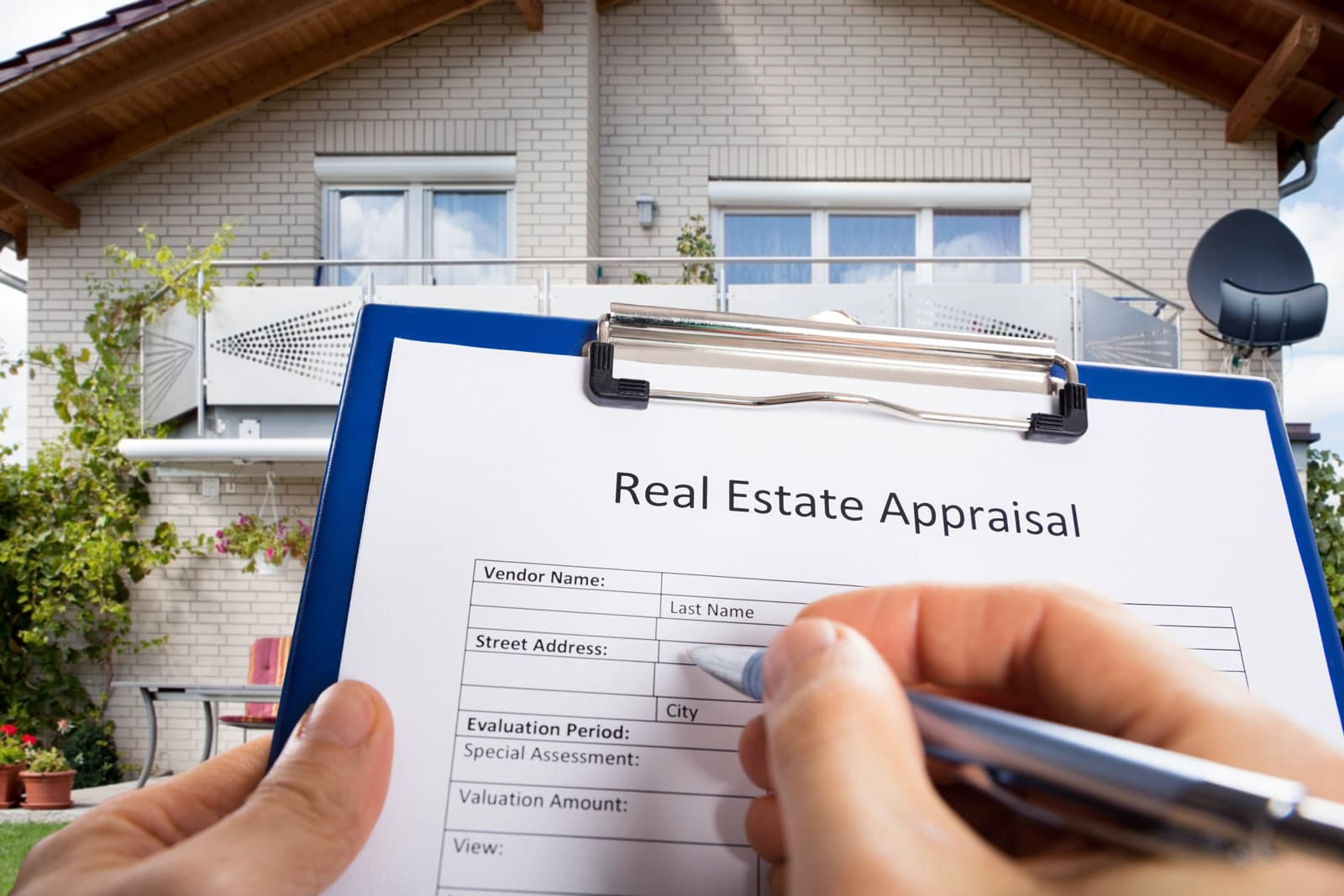Appraised Value vs Market Value

What is the value of the home you own or the one you want to buy? The answer to that question is a little more complex than it appears on the surface.
When we are discussing home values, we need to be clear about which values we are talking about. Homes have market values, appraised values and assessed values, all of which can differ from one another.
This post will explain what each of these different types of values mean and why they matter. We will start by explaining appraised value.
What Does Appraisal Value Mean?
The appraised value of a home is whatever value a professional appraiser assigns to it based on their inspection.
A home can have more than one appraised value, because a buyer may get more than one appraiser if they desire a second opinion.
For an appraiser—and their assessment—to be legitimate, they must be licensed in the state.
Why Do Home Appraisals Matter?
Whether you are purchasing a home or selling one, the outcome of an appraisal is a key part of the process. Homeowners seeking refinancing also need to get appraisals.
For a homebuyer to purchase a property with a mortgage, they need approval from their lender. But the lender will only approve a mortgage after an appraisal takes place. They do not want to loan a borrower more money than they deem reasonable to purchase a property.
Ordering an appraisal helps to check whether the price the seller is asking for is fair.
If you are the one selling a property, it is equally important for you that the appraisal turn out well. If the appraiser determines that your home is overvalued, that could cause the lender to deny the mortgage. If that happens, the buyer will not have the money to move forward with the purchase.
If you want the transaction to proceed, you might need to reduce the price you are asking for so that it matches the appraised value of the property.
Most of the time, the cost for a home appraisal falls on the buyer. So that at least is good news if you are selling.
What Factors Do Appraisers Consider When Assessing Value?

Here is some of what appraisers look at when they are determining the appraised value of a home:
- The age of the home.
- Where the home is located.
- The square footage.
- How many bedrooms and bathrooms there are.
- The state and type of foundation.
- Structural stability.
- The quality of roofing and siding.
- HVAC and other built-in appliances.
- Amenities.
- Upgrades and luxury features.
- Compliance with local regulations and codes.
- Overall condition.
- Curb appeal.
- How the home’s features and design fit with current trends.
- How the home compares to other listings in the area for comparable properties.
Remember, two different appraisers may draw two different conclusions when assessing a home.
What is Market Value?
Now you know what appraisal value is. But what is market value?
The market value of a home is what a typical buyer is willing to pay for it.
Market value can be considered a more “concrete” measurement of value in some respects, because in the long run, what matters most is whether buyers are willing to purchase a property or not.
If a home’s appraised value is high but for whatever reason, real life buyers are unwilling to purchase it at that price, it is not going to sell at that appraised price.
Just as the market value for a home may sometimes be lower than the appraised value, it can also sometimes be higher.
There are many possible reasons why a home’s market value and appraisal value might not be a perfect match. Here are just a few:
- Perhaps the appraiser misinterpreted current trends, and is out of touch with what buyers are looking for in a home.
- Maybe inflation and other economic factors are making it harder for homebuyers to afford what they would have in the recent past, and an appraiser failed to account for this.
- Sometimes appraisers make mistakes. An appraisal may sometimes simply be inaccurate.
What is Assessed Value?
One more type of home value that you should be familiar with is assessed value.
Assessed value refers to the value assigned to your property by your local government for property tax purposes.
Local governments do not rely on home appraisals to determine assessed value; instead, the county assessor comes up with the number based on the market value of the home.
Homebuyers and homeowners alike need to be concerned with assessed value, since this is what determines property taxes. An incorrect assessed value could lead to you having to pay higher taxes on your property than is fair.
If You are the Seller, What Can You Do to Get Ready for the Appraisal?
Now that you understand the differences between market value, appraisal value and assessed value, we can answer some common questions about all three.
If you are selling your home, you want to maximize the appraisal value for your property. Here are some ways you can do that:
- If there are some simple repairs and upgrades you can make, doing so may be worthwhile.
- Declutter your home and make it look neat and tidy.
- Freshen up your paint.
- Make some simple changes to boost your curb appeal.
- While the appraiser is inspecting your home, draw their attention to upgrades and amenities.
Do not take a passive approach here. Be proactive, and you will get a better result.
One question you might have as a seller is, “Should I order an appraisal myself?” The common advice is “no.”
Realtor Julie Upton explains, “The market value is what someone is willing to pay for a property—often influenced by emotion and how competitive the area is. In a multiple bidding situation, prices are driven up because buyers get emotionally caught up in the bidding process and may pay well over an appraised value. If someone really wants a property, they won’t care what the appraised value is, they simply want it no matter what.”
For this reason, it is recommended that you skip ordering your own appraisal, and let the negotiating process unfold. The buyer will need to deal with the appraisal later and pay for it.
As the Buyer, What Can You Do if the Appraisal and Market Value Do Not Match?
Let’s say you are the buyer. The results of the appraisal just came in, and the appraised value for the home is significantly lower than the sale price listed.
The first thing you can try doing is checking carefully over the appraisal to see if there are errors. If there are, you can ask for the appraisal to be adjusted, which might sometimes be sufficient to get the value you need for approval.
If that does not work, there is a chance that the seller might be willing to make some repairs and upgrades to try and bring up the appraisal value.
Another option is to try getting a second appraisal from another licensed appraiser. That person may come back with a different amount.
Finally, the lender may deny a mortgage that exceeds the amount of the appraised value, but they might not deny a mortgage that fits within that value. If the market value of the home is higher and you are willing to pay the difference in cash, you may be able to move forward with the purchase.
What Can You Do About a High Assessed Value?
Now let’s talk about what you can do if you believe that the assessed value of your home is higher than it should be.
Naturally, you do not want to waste money on property taxes you should not owe. So, you should file an appeal as soon as possible.
With your appeal, your goal is to demonstrate that the assessed value was calculated incorrectly.
You need to go a step further than trying to lower the real market value. Even if you are correct about the RMV being too high, if the assessed value was correctly calculated, you will not get your property taxes lowered.
How can you prove that the calculation for the assessed value is wrong? You could document sales data for comparable homes and/or provide appraisal reports to support your case.
While it can be a challenge to get an appeal to go through, it can save you hundreds or even thousands of dollars in property taxes if you are successful.
Final Thoughts
You have now had a chance to learn about assessed value vs. market value vs. appraisal value for homes, what each of these mean, and why they are important.
Regardless of whether you are buying or selling a home, attempting to refinance, or are trying to lower your property taxes, having a deep understanding of these types of value will help you achieve your goals.


